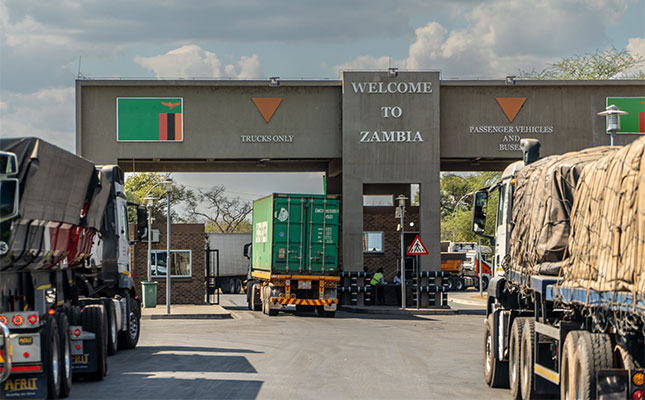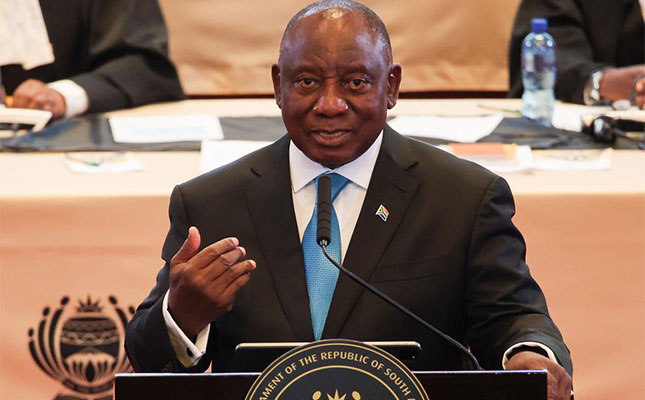
Government seems to be waking up to the power of private land ownership, but it may not be enough to keep all farmers on the land.
What are your biases?
Humans are riddled with biases. One of the most prevalent is the hunger for bad news. It’s a fact: most people are drawn to depressing stories and that’s why newspapers and TV are filled with disaster, corruption and incompetence.
These are the stories that sell. It’s known as the ‘negativity bias’.
READ If you have a brain, you’re biased
I’m aware of it and I’m afraid of it, and always on the lookout for good news to counter the deluge of bad news.
That’s why a recent headline in Farmer’s Weekly, ‘Farmers go into the new year with good news about title deeds’, caught my eye (2 February 2024).
The article, by economist Dr Sifiso Ntombela, provides a brief history of land reform in South Africa and reports on government’s recent roadshow informing farmers leasing land from them that they will soon receive title deeds.
Great news, as it creates an opportunity for them to build value in their businesses and provide collateral for working capital loans.
However, given the numerous broken promises and plans gathering dust in government offices, my negative bias kicked in.
Attempting to assess the reliability of previous promises to deliver title deeds, I did a quick Google search.
It dispelled my pessimism. The keywords ‘title deeds handed over 2024’ elicited a flood of stories from 2021 to 2024.
Here’s a sample of a just a few
- ‘Government hands over 299 title deeds in KwaZulu-Natal’.
- ‘Human Settlements Minister will hand over newly built homes and title deeds in Ekurhuleni’.
- ‘403 title deeds handed to residents in Jeffreys Bay, Thornhill, Patensie and St Francis’.
- ‘Minister Thoko Didiza hands over title deeds for 1 282 hectares of land to 1 279 households in Izinini: 30 title deeds handed to black farmers in Groblersdal’.
- ‘Kouga Municipality issues 1 172 title deeds to residents across the region’.
- ‘The City handed 1 500 title deeds to Tafelsig residents today’.
- ‘359 title deeds handed to beneficiaries at Stretford in Sedibeng’.
I wonder why these events were not more prominently reported? Could it be they are good news stories and won’t attract attention?
This underscores the importance of being cautious in selecting the media we use to form our opinions and judge the world around us.
It seems I may have misjudged government’s intent to hoard all land and starve aspirant farmers of land ownership.
However, as any experienced farmer knows, title deeds and land ownership are not nearly enough to build a successful business.
Without skilled, competent management and a supportive government maintaining law and order, providing infrastructure such as roads, railways, working ports and so on, all the title deeds in the world will not guarantee success.
The failure of many farming ventures operating on title deed land is testament to this fact of life.
Antjie Krog, in her book A Change of Tongue, tells a story of Petrus Sithole, a skilled farmer for whom ownership of land was something mythical, representing the ultimate in independence and being human.
Despite having bought a farm in 1997, he is struggling to make a living and keep his business viable.
Land ownership, without the additional elements needed to build a successful farm, is no silver bullet.
READ Farming profitably on leased land
Two of the most successful farmers I know have never owned land.
Charles, an expert vegetable producer, processor, packer and marketer, has local supermarkets vying to purchase his high-quality, reliably supplied products. It’s all done from leased land.
Marius doesn’t own the land or even the chicken houses on which his successful poultry operation stands.
He prefers to invest his capital in equipping the leased houses with the best equipment money can buy, resulting in high feed conversion and low mortality rates.
While it’s an essential and positive step for government to deliver title deeds, it’s not enough. Building a great farming business requires more than owning the land.
Peter Hughes is a business and management consultant.
Get trusted farming news from Farmers Weekly in Google Top Stories.
➕ Add Farmers Weekly to Google ✔ Takes 10 seconds · ✔ Remove anytime




